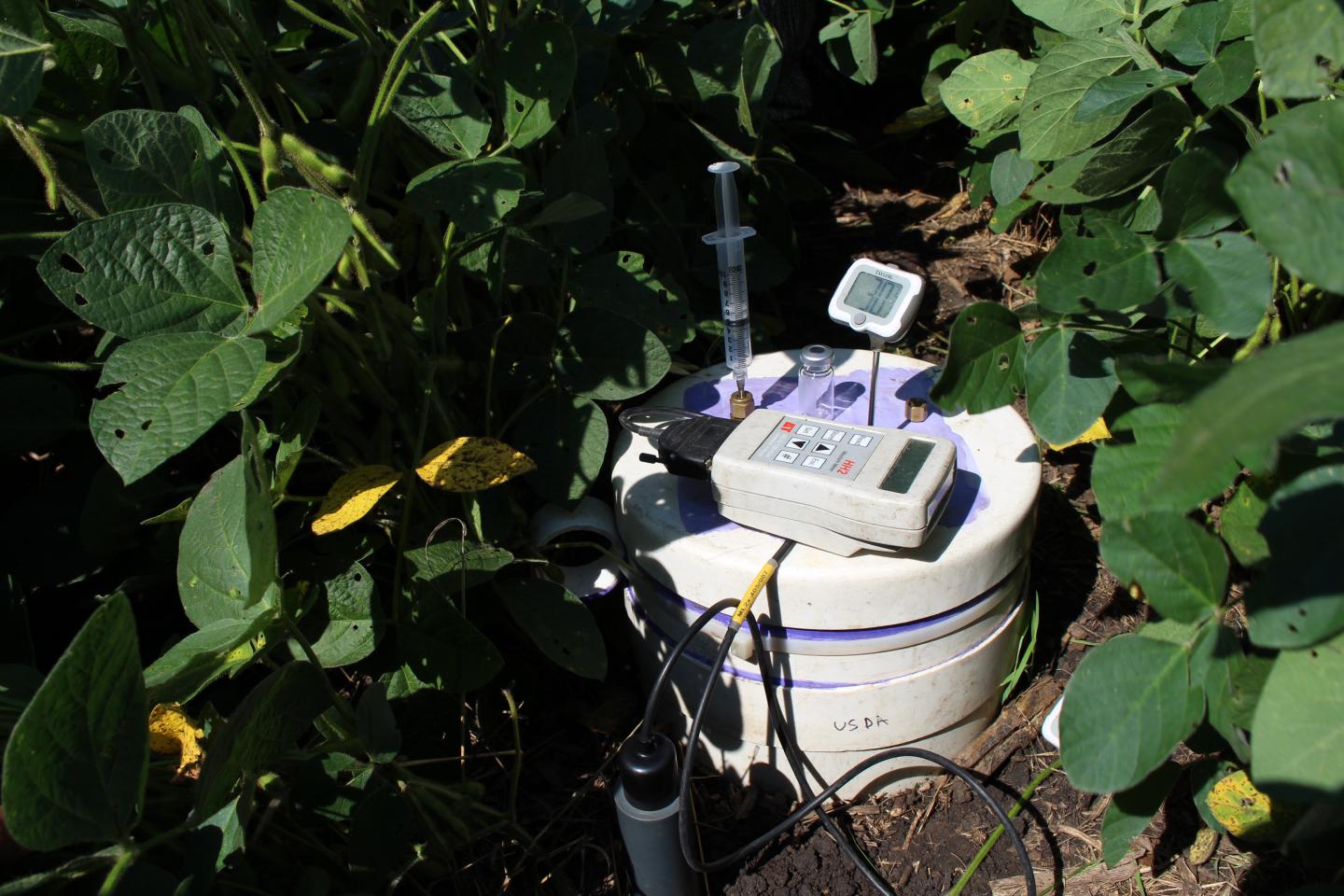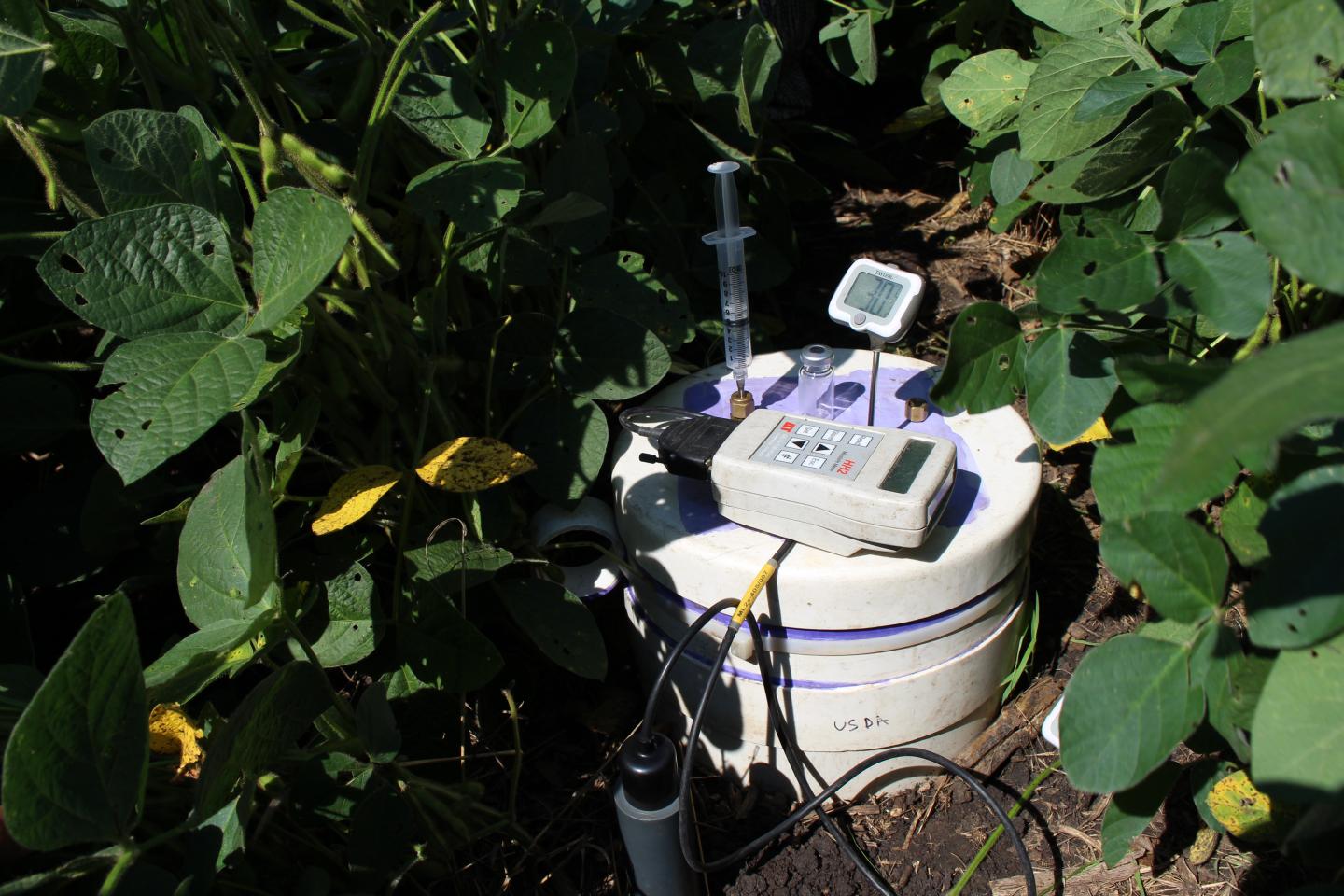
Credit: Sandeep Kumar and team.
In a newly published study, researchers dug into how fertilizing with manure affects soil quality, compared with inorganic fertilizer.
Ekrem Ozlu of the University of Wisconsin-Madison and his team studied two fields in South Dakota. From 2003 to 2015, the research team applied either manure or inorganic fertilizer to field plots growing corn and soybeans. They used low, medium, and high manure levels, and medium and high inorganic fertilizer levels. They also had a control treatment of no soil additives to provide a comparison.
In the summer of 2015, they collected soil samples at a variety of depths using a push probe auger. Then they analyzed the samples.
- >>Manure helped keep soil pH–a measure of acidity or alkalinity–in a healthy range for crops. Inorganic fertilizer made the soil more acidic.
>>Manure increased soil organic carbon for all the measured soil depths compared to inorganic fertilizer and control treatments. More carbon means better soil structure.
>>Manure significantly increased total nitrogen compared to fertilizer treatments. Nitrogen is key to plant growth.
>>Manure increased water-stable aggregates. These are groups of soil particles that stick to each other. Increased water-stable aggregates help soil resist water erosion. Inorganic fertilizer application decreased these aggregates.
>>Manure increased soil electrical conductivity at all soil depths in comparison to inorganic fertilizer and control treatments. Higher soil electrical conductivity means higher salt levels in the soil.
Ozlu and his team concluded that long-term annual application of manure improved most soil quality properties compared to inorganic fertilizer. "Increased electrical conductivity is one of the few negative impacts of manure," Ozlu said.
The team also measured the effects of larger and smaller doses of each treatment at different soil depths. This will provide useful guidance to growers.
So, what could a backyard gardener learn from this study? Ozlu said, "I recommend gardeners use composted manure, especially in solid form, because manure is the fertilizer that supports better soil quality by improving almost all soil properties. Inorganic fertilizer is better in terms of electrical conductivity, but it does not improve other soil properties and crop yields better than manure."
Ozlu concluded, "If you think of soil as a heart, manure is the lifeblood going through it."
This is a poetic view of manure, to be sure. But perhaps this humble yet enormously useful substance deserves a little poetry.
###
Sandeep Kumar of South Dakota State University contributed to this research. It is published in Soil Science Society of America Journal. This research work was partially supported by the Agricultural Experiment Station (AES) of South Dakota State University (SDSU), and the General Directorate of Agricultural Research and Policies, Ministry of Food, Agriculture, and Livestock, Republic of Turkey.
Media Contact
Susan Fisk
[email protected]
608-273-8091
@ASA_CSSA_SSSA
http://www.agronomy.org
Related Journal Article
http://dx.doi.org/10.2136/sssaj2018.02.0082





